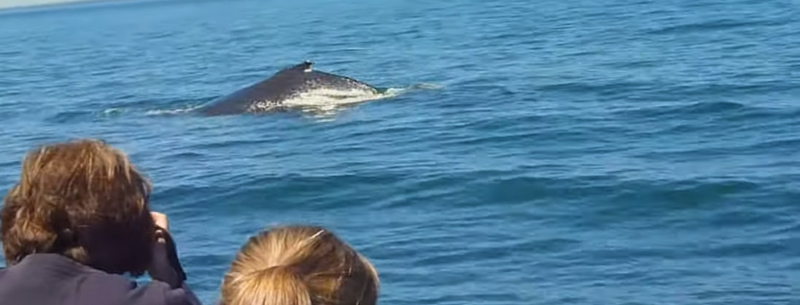Best Whale-Watching-Destinations
Whale watching is powerful and some say life-changing experience. Whales are enormous (you almost have to see one in real life to appreciate just how big they are), graceful, and peaceful creatures. Sharing our planet, but occupying a completely different world, whales are as mysterious as they are beautiful.
If you’ve been hankering to cross ‘encounter a deep-sea giant’ off your bucket list, try whale watching at one of these unforgettable locations.
Whale Watching Kaikoura, New Zealand
Kaikoura is well-known in New Zealand, and around the world, as a great eco-tourism destination. Set at the foot of the dramatic Kaikoura mountain range, the scenery alone will make any boat trip memorable, but the 95% success rate of the town’s whale watch tours means that you’ll definitely come away with a unique experience.
When to go: Anytime! One of the drawcards of Kaikoura as a whale-watching destination is the predictable year-round presence of whales. Local operators Whale Watch know many of the whales by name, but of course, there are often stray pods that venture into the area, drawn by the deep waters of the Kaikoura Canyon just 2 kilometers offshore.
San Juan Islands Whale Watching, Washington, USA
The San Juan Islands are a picturesque archipelago in north-western Washington where orca swims and plays. Though they aren’t technically whales, orca watching is a popular tourist attraction on the islands. Whale watching tours operate by boat and helicopter, though it’s also possible to encounter orca on your own by renting a kayak and paddling around the shore.
When to go: The best time for orca spotting is April through September. The summer months of June, July, and August are especially beautiful in the San Juan Islands, where temperatures average around 70F (21C).
Whale Watching Hermanus, South Africa
Hermanus is a town on the southern coast of South Africa and is possibly the world’s best land-based vantage for whale watching. Harmanus is also home to the ‘Whale Crier’, who takes a post by the cliffs and sounds his horn whenever a whale is spotted.
When to go: Whales visit the bay from May to December and then migrate to warmer waters for the South African winter. If you can, try to visit in later September, when the town hosts its annual whale festival.
Quebec Whale Watching, Canada
The St Lawrence River in Quebec is one of the most diverse whale watching spots in the world. Blue whales, fin whales, humpback whales, and even the rare beluga live in these waters.
When to go: The whales can be spotted May through October, with peak sightings from mid-July to the beginning of September.
Vava’u Whale Watching Tonga
In the winter months, humpback whales migrate to the warmer, tropical waters surrounding Tonga. Whale watching here is different to the other locations on this list, as a number of tours actually take you swimming with the whales.
When to Go
The whales start migrating to Tonga at the end of May when the waters around Antarctica become too cold. They can be spotted from June, but the best time for sightings is between July and October.
What will the whale watching experience be like ?
Every viewing is different and that adds to the expectation of the experience. Some days, you observe the whales, as they continue their travels along the coast, on other occasions we find them resting, and most occasions we observe them either breaching, tail slapping, or pectoral fin slapping.
No doubt you will be anticipating and wondering what your experience will be like. Whale watching is about patience and understanding that we are indeed in the whale’s environment. When they grace us with their presence, it’s a gift. The gift cannot be controlled or timed. In their natural environment, whales will be whales, mostly swimming, sounding, and occasionally displaying some of their particular behaviors. It’s a privilege to be an observer. We hope your experience will leave you with a greater understanding of whales, their precious environment, and what you can do as an individual that will make a difference to their world and ours.
